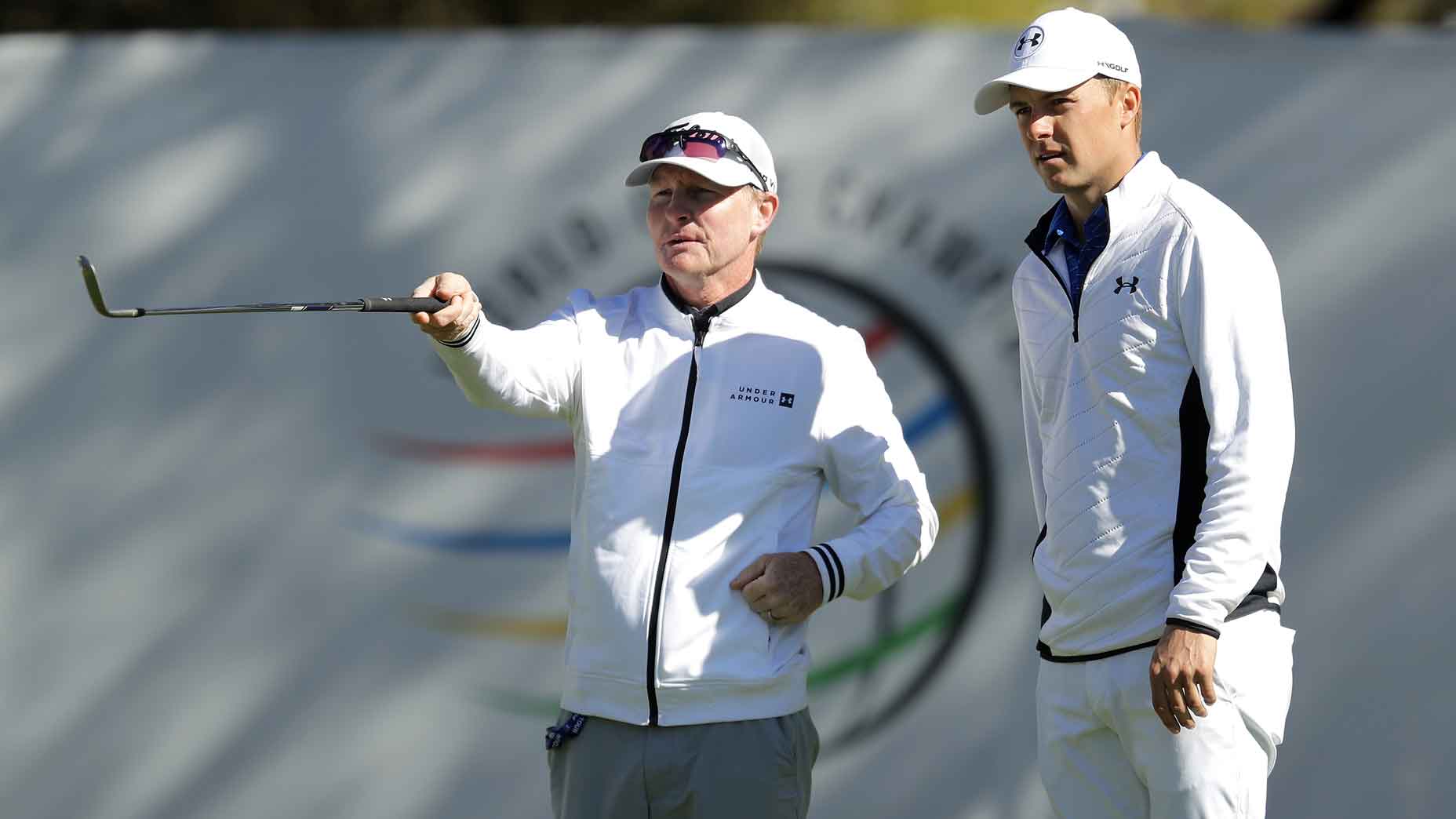If you’re anything like me, you’re probably wondering how to find a golf coach that can clean up your game and help you post lower scores.
Believe it or not, despite being the Instruction Editor here at GOLF, I’ve never taken a formal lesson. I know, it’s pretty embarrassing to admit, but I’ve always tried to figure things out on my own — without great success.
Now that I have direct access to the best golf teachers in the world, I’m starting to incorporate some of their fundamentals into each of my rounds. Not only have I started to shave strokes off my game, but I’m starting to make the game easier for myself as well, giving myself a better understanding of my strengths and weaknesses.
So if you’re in the market for a golf coach, GOLF Top 100 Teacher Cameron McCormick has eight things to focus on — which can help you determine if he or she is a good fit for your game. Take a look below.
How to find a golf coach: 8 things to look for
Experience
Naturally, McCormick suggests looking at a teacher’s experience prior to deciding if he or she is the right fit for you. Anything less than five years is considered to be a rookie, in McCormick’s opinion. Also, be sure that any teacher has a quality mentor who helped guide their philosophies.
Expertise
There are different golf coaches for different parts of the game. Many PGA players have a swing coach and then work with a short game or putting coach — so McCormick reminds people to dig into what the expertise is of the teacher you’re considering. If he or she matches up with what you’re hoping to improve on, it could be a good fit.
Philosophy and ethos
There’s no one player who has the “perfect golf swing,” as every person seems to do things differently. McCormick recognizes this, and says that finding a golf coach who adapts to your style is an important factor. He also says to be wary of any teacher who tries to follow a “one-size-fits-all” mentality for all their students.
Skillset
Sure, it’s impressive to boast about working with a PGA-level golf coach, but does that fit your game? Are you ready to make that type of commitment to the sport in order to improve? If not, it’s best to find a teacher who works with amateurs and understands how to motivate those types of players to get better. So do your research and read testimonials from players like you before making a decision.
Facilities and tools
Both facilities and understanding golf data can make a huge difference, says McCormick. While he’s quick to mention these aren’t the only things that make a good golf coach, they should be considered when you’re considering your options. He specifically emphasizes the use of technology as a major factor for every golf coach — which can help track progress and support the idea of retooling certain aspects of your game.
Upskilling
I’m currently a 13-handicap, so McCormick says it’s important to work with a golf coach who can stick with me as I continue to improve — not just in the short-term, but the long-term as well. That’s why he says to find a coach who can grow with you, and continue to help you improve as you post lower scores.
Vibe
Relationships are the key to success, so be sure to do some homework on the overall vibe and personality of any golf coach you’re considering. Some students prefer tough love over being coddled. McCormick says to dig into some of the reviews from past students to get an idea of the coach’s communication style.
360-degree relationship
McCormick reminds players to find a golf coach who provides 360-degree access. If you’re on a golf trip with friends and need some advice before a round, will he or she be available to provide insight? Outside of the face-to-face lessons, the teachers who can provide remote golf instruction are the ones who will separate themselves from their peers.
